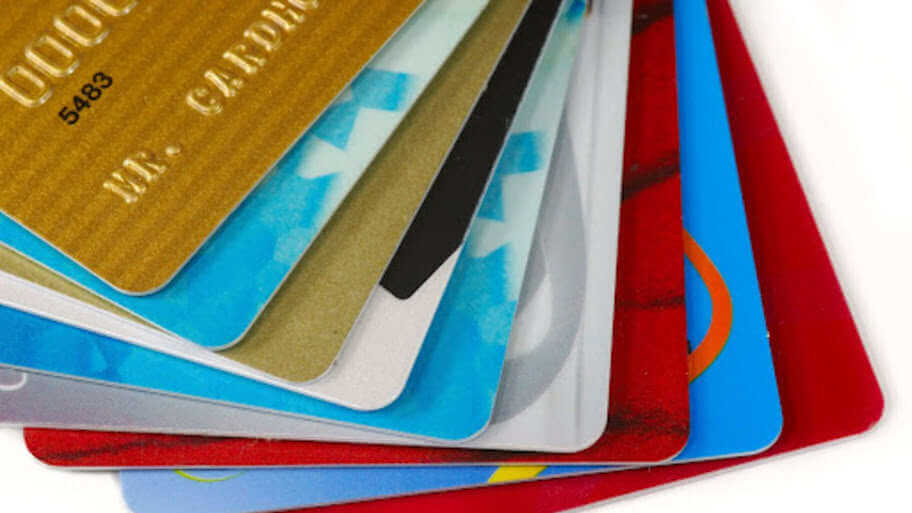A credit score is very important for when it comes time to acquire credit cards and loans in order to make larger purchases. As a high credit score demonstrates to lenders that you are low-risk and have a good payment history, you are more likely to get better deals on insurance and loans.
It’s only natural to want to have a better understanding of what you can do to improve that score and maybe more importantly, what you can do to prevent getting black marks on your credit.
One common concern is whether there is such a thing as too many credit cards and what effect having multiple cards can have on a credit score.
Everything you need to know to answer that question can be found right here in this article.
Factors That Affect Your Credit Score
In order to understand the effect that having many credit cards can have on your score, it’s important to understand what factors actually have an effect on that score. There are three major aspects which are major contributors that determine your credit score.
Payment History
A whopping 35% of your entire credit score is determined by your payment history. If you have made all your payments in a timely fashion and have a nice record for doing so, then that will have a positive effect on your score.
If, on the other hand, you have missed payments or have deficient accounts, that can give you a spotty credit history that warns lenders that you may not be worth the risk.
Debt to Credit Ratio
Coming in at a close second with a 30% impact on your score: debt to credit ratio. This evaluation looks at how much credit you have available to you in total, then considers how much of that credit is locked up in debt.
If you only have 30% or less of your total limit used, then lenders look on that favorably because it means you have a lot of credit available to be used in the case of an emergency and also that you have managed to control your debt.
Having a full or nearly full credit limit is a warning flag because it could indicate to lenders that you are struggling and perhaps want a loan or a card to try to help with overwhelming debt, and that is not going to look like a safe bet for them.
Account Longevity
At about 15% in the impact department, account longevity is still a decent consideration for credit score influence.
Credit card companies and lenders are interested in whether you have managed to maintain credit accounts for a long period of time, so having an account open for a long time reflects well on you.
What you have to keep in mind is that they do not consider each individual account, but take the average of your account longevity. That is going to play an important role in the determination as to whether more credit cards can damage your credit score.
Note: Having an open credit account, even if you do not use it, still can positively influence your credit score in two different ways. First, the account is building longevity. Second, even if the account is at zero, you still get some credit for your debts being paid-up!
How Multiple Cards Can Affect Your Credit Score
Okay, so now that you understand some of the more important considerations that make up a credit score, you can fully appreciate how having multiple cards can affect that score.
The Risks of Multiple Cards
A major determinant in whether having multiple cards negatively impacts your score is actually your personal spending habits and organization.
Debt Ratio
If you often face temptation to use credit just because you have it, then you are going to end up driving up your debt, which will cause your debt to credit ratio to increase. That will lower your score.
Missed Payments
Furthermore, if you are juggling multiple cards, you increase the chance that you might forget something on one of the cards and miss a payment. You already know how important payment history is on your reputation, so that can be a major blow!
“Hard” Credit Checks
Here’s another little known fact that comes into play. Every time you apply for a new credit card, they do what is called a “hard” credit check on you. That differs from a “soft” credit check because a hard credit check actually damages your credit score.
It’s not a major blow and is quickly overcome, but if you make several applications within a short period of time, that can add up and cause a more serious problem.
Account Longevity
It’s also worth considering that every time you open a new credit card account, you are lowering your credit account longevity score. You may have an account that has been around for years, but as soon as you open a new account, this new baby is going to average in and your account longevity is going to tank.
Now, that is something that will (obviously) improve over time, and if handled properly the benefits outweigh the negatives.
Note: Many people who have multiple credit card accounts have built them up over time, so just make sure that you space out your applications and give your score time to naturally overcome the small blips that the application process will cause.
Can Having Multiple Cards Actually Benefit Me?
Yes! It really can! Here’s how:
-
-
- Opening a new account with a new credit limit automatically lowers your maximum available credit, which means that if you have credit card debt, the debt to credit ratio will lower and that will positively affect your score.
- Lenders actually feel more confident in offering you a loan or a better deal if you have five or more credit accounts or loans of some variety that you are handling well. They view “thin” credit accounts as a risk.
- Showing you can manage multiple accounts well can give you a boost
- You can get multiple rewards cards which can save you a lot of money. Shoppers love rewards credit cards, but retailers hate them because it can cost them higher fees. That doesn’t stop you from using them to maximize savings, though!
-
Q&A
What Is An Annual Fee For A Credit Card?
This is a yearly bill that the card provider charges you to use the card. It can be a huge problem if you’re juggling multiple cards.
Can I Purchase Airtime with a Credit Card?
Yes, credit cards are often allowed for these types of transactions.
Why Do They Need a Credit Card To Hold A Restaurant Reservation?
They most likely have a cancellation fee to secure their time and recoup any losses if you do not show. Always be wary though, any time you are giving out credit card information, that is a security risk.
Note: If you want a place to discuss credit card approvals, Myfico is a good forum where you can ask questions and learn about other people’s experiences.
Featured Image: Megapixl








